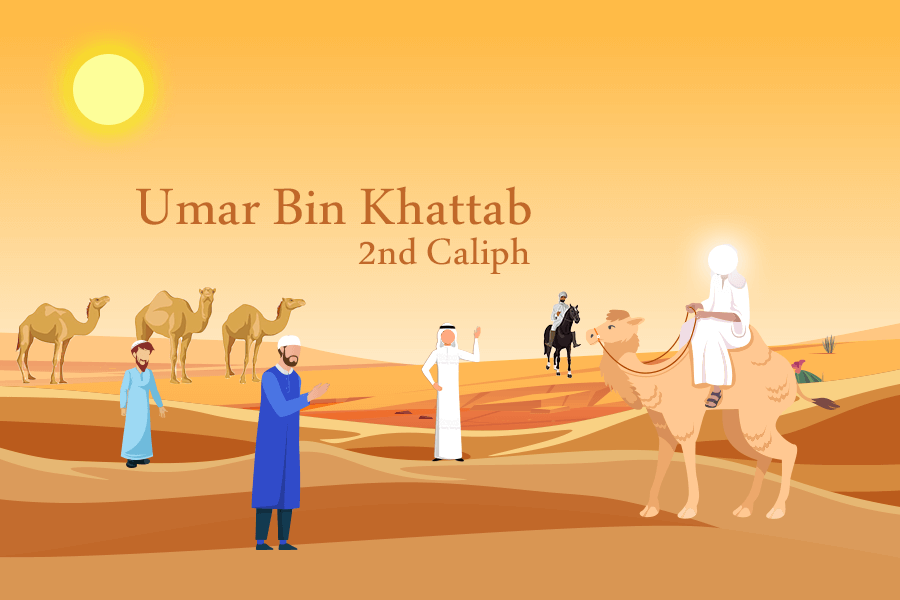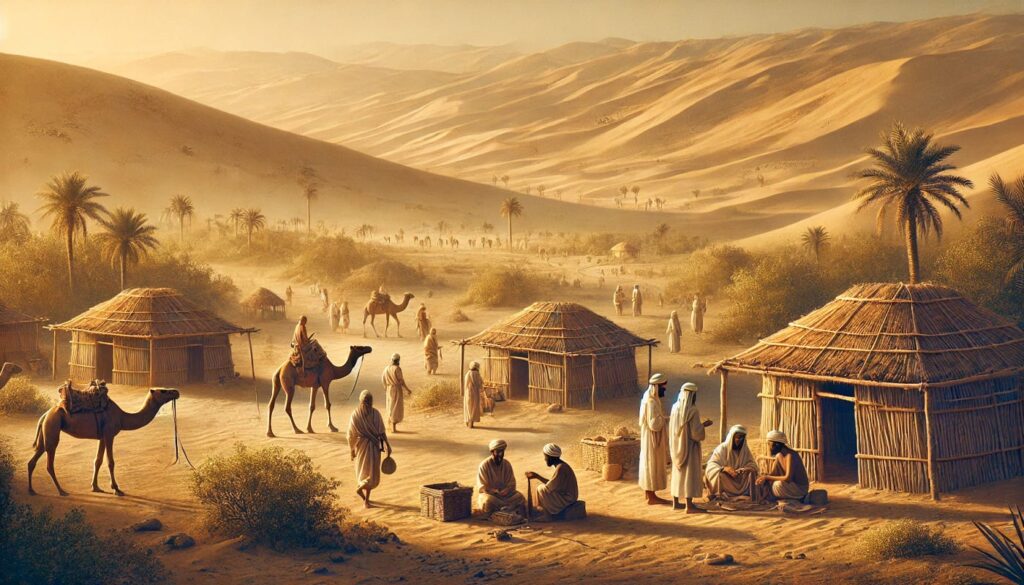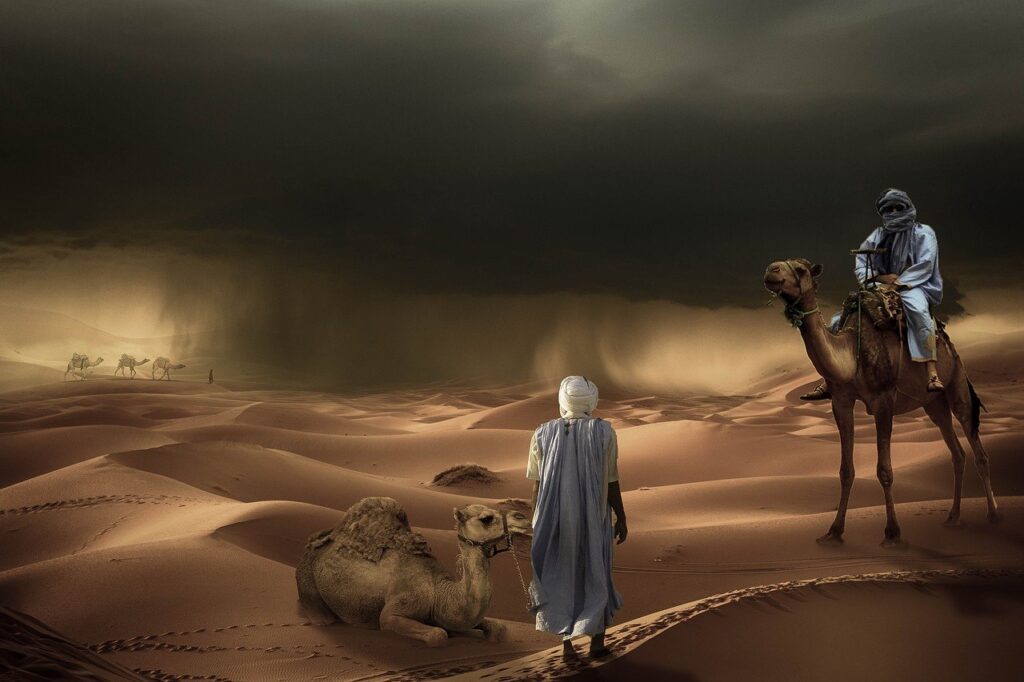Understanding Umar ibn al-Khattab’s Legacy When I first started learning about Islamic history, one name kept standing out—Umar ibn al-Khattab. He wasn’t just the second caliph. 2nd Khalifa Umar ibn al-Khattab: All About His Journey (How-To Guide)
He was a true reformer, a bold leader, and a man of deep faith. In this guide, I’ll take you on a journey through his life, showing how his leadership, character, and decisions shaped the Muslim world. If you’re eager to understand his powerful legacy, you’re in the right place.
H1: Who Was Umar ibn al-Khattab?
H2: From Opposition to Devotion

Before Islam, Umar was known for his strong personality and firm stance against Prophet Muhammad (PBUH). He was fierce and fearless, and many feared him. But everything changed when he accepted Islam. This transformation became one of the most inspiring stories for Muslims worldwide. His journey teaches me that no matter where we start, we all have the power to change and grow.
H2: His Acceptance of Islam
Umar’s conversion was a turning point. He secretly went to his sister’s home and ended up reading verses from the Qur’an. Touched by its words, his heart softened. That moment marked a new beginning. He later said:
“The heart that truly seeks truth will never be left blind.”
From that day, he never hid his faith. His strength became Islam’s strength.
H1: His Time as the Second Caliph
H2: Taking Charge After Abu Bakr
After the death of the first caliph, Abu Bakr as-Siddiq, the responsibility of leading the Muslim Ummah fell on Umar. I always admire how calmly he took on such a massive role. He wasn’t just leading prayers—he was managing an entire growing empire. His focus was on justice, equality, and service.
| Caliph | Years of Rule | Key Contributions |
|---|---|---|
| Abu Bakr | 632–634 CE | Unity after Prophet’s death |
| Umar ibn al-Khattab | 634–644 CE | Expansion and justice |
H2: His Reforms and Governance
Umar introduced amazing reforms that still influence our systems today. He created the Islamic calendar, organized the military, and even formed the first welfare system. Under his leadership, the Muslim state expanded rapidly but stayed just and organized. I think his legacy is proof that you can grow without losing your values.

List of his reforms:
- Created a Bayt al-Mal (public treasury)
- Established courts of justice
- Appointed honest governors
- Introduced stipends for the poor and elderly
H1: His Character and Leadership Qualities
H2: Justice Above All
One thing that always amazes me about Umar was his fairness. Whether it was a rich man or a poor child, he treated everyone equally. A famous quote of his says:
“Even if a dog goes hungry under my rule, I will be responsible for it.”
This shows how deeply he cared for people. He used to patrol the streets at night to make sure everyone was safe and fed. That’s real leadership.
H2: Simplicity in Power
Despite ruling a vast empire, Umar lived a humble life. He wore simple clothes and ate plain food. Even when people suggested he live more royally, he refused. He said:
“We are a people whom Allah honored with Islam. If we seek honor in anything else, Allah will disgrace us.”
I always remind myself of this when tempted by status or material things.
H1: Major Achievements During His Rule
H2: Expansion of the Muslim World
Under Umar, the Islamic empire expanded to include Persia, Egypt, and the Levant. But it wasn’t just about land—it was about spreading justice. Umar instructed his armies to treat people fairly, even if they weren’t Muslim. That approach earned respect and helped Islam spread with love, not fear.

Territories Conquered:
- Egypt
- Syria
- Persia (Iran)
- Iraq
- Palestine
H2: Establishment of Islamic Governance
What I find remarkable is how Umar managed the new regions. He didn’t just conquer; he built systems. He trained governors, created laws, and made sure taxes were fair. Even non-Muslims under his rule felt safe and respected. That’s what makes Umar’s leadership stand out from other rulers in history.
H1: Personal Traits That Shaped His Journey
H2: Fear of God and Accountability
Umar used to say:
“If a single sheep dies on the banks of the Euphrates, I will be held accountable by Allah.”
This deep sense of taqwa (God-consciousness) guided every action he took. I try to apply this in my life—being mindful that I’ll answer for my choices. It helps me stay grounded and honest.
H2: Wisdom in Decision Making
Umar always consulted with others before making decisions. He formed a council of companions and listened to different opinions. I’ve learned from this to never act in haste. Wisdom lies in discussion, reflection, and prayer. His method of Shura (consultation) set a powerful example for leaders today.
H1: The Martyrdom of Umar ibn al-Khattab
H2: A Tragic End
Umar was assassinated while leading the Fajr prayer. A Persian slave named Abu Lu’lu fatally stabbed him. Despite his wounds, Umar remained calm. He appointed a council to choose the next caliph. Even in death, he thought of the future. This shows his deep sense of duty and love for the Ummah.
Key Facts:
- Died: 644 CE
- Age: 60
- Buried: Beside Prophet Muhammad (PBUH) in Madinah
H2: His Final Words and Wisdom
As he lay dying, Umar reminded everyone:
“If my time is over, I accept it. If I live longer, it’s Allah’s mercy.”
These words reflect his unshakable faith. He didn’t fear death—he feared failing his responsibility. That’s the kind of mindset I try to build: not fearing loss, but fearing injustice and neglect.
H1: Lessons from Umar ibn al-Khattab’s Life

H2: What We Can Learn Today
Every time I read about Umar, I take away something new. He was more than just a caliph—he was a role model. His honesty, leadership, simplicity, and trust in Allah can guide anyone. In today’s world of ego and power games, his story is like a guiding light.
Key lessons from his life:
- Lead with justice
- Stay humble no matter your power
- Always consult before acting
- Care for the weak and the poor
- Stay close to God in everything you do
H2: Living Like Umar in Modern Times
You don’t need to rule a country to follow Umar’s footsteps. I try to apply his values in my everyday life—helping neighbors, making fair decisions, and staying honest even when it’s hard. Small acts of integrity can lead to big changes in our world. Umar taught us that true leadership begins at home.
Conclusion: Carrying Umar’s Legacy Forward
Umar ibn al-Khattab’s journey is not just a chapter in history; it’s a living guide for how to be strong, just, and kind. His life taught me that real strength lies in humility, and true leadership is rooted in service. Whether you’re a student, parent, or community leader, there’s something in his life for all of us. Let’s carry his torch forward by living with honesty, courage, and faith.
Key Takeaways
| Lesson | Description |
|---|---|
| Justice | Treat all people fairly, regardless of status |
| Humility | Live simply even when powerful |
| Faith | Put trust in Allah during all trials |
| Wisdom | Always seek advice before decisions |
| Service | Look out for the poor and helpless |
Quote to Remember:
“If there were to be a prophet after me, it would be Umar.” – Prophet Muhammad (PBUH)


